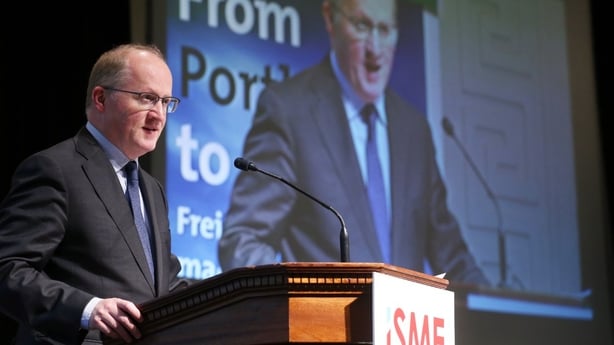Europe's insurance watchdog has warned national regulators not to undercut one another in their attempts to attract firms moving from London because of Britain's exit from the European Union.
London-based financial services firms have been making plans to set up operations in the EU to maintain access to its single market after Brexit.
There is fierce competition among major European cities, including Dublin, Frankfurt and Paris, to attract them.
As a result, the EU regulator is concerned about the risks of new "letter-box" companies springing up in the EU that delegate key operations to parents in London.
It has said that any countries offering such flexible solutions to attract business could undermine stability.
Any regulatory leeway at the national level "is not a means for lowering standards or for disregarding prudential requirements," the European Insurance and Occupational Pensions Authority (EIOPA) said.
"Sound supervision demands appropriate location of management and key functions," EIOPA Chairman Gabriel Bernardino wrote in a statement accompanying a seven-page guidance document.
"Empty shells or letter boxes are not acceptable," he added.
EIOPA said regulators should ensure that firms setting up shop in the European Union should exhibit "an appropriate level of corporate substance, proportionate to the nature, scale and complexity of the planned business."
This includes a reasonable level of local staff, it said.
Regulators must also allow sufficient time for the application process and not take shortcuts.
EIOPA warned against an automatic recognition of a firm because it was granted by another supervisor in another member state.
It also said that companies moving into the EU might be tempted to try to limit the impact of relocation by outsourcing functions and activities.
The watchdog said that such outsourcing must not "deplete the corporate substance of the EU entities with repercussions on the adequacy of their management and on the effectiveness of supervision by the EU27 supervisors."
Earlier this year, Ireland complained to the European Commission that it is being undercut by rival centres competing to host financial firms looking for a European Union base outside London after Brexit.
The then Minister of State for Financial Services Eoghan Murphy said that other cities in Europe are being very aggressive in trying to win business, describing what he called "dangerous competition".
"We have always said we would not be predatory, that we are not interested in brass plating," referring to the practice of setting up a token operation with a "brass plate" sign outside in order to gain market access.
Mr Murphy said he had raised concerns with Valdis Dombrovskis, one of the European Commission's most senior officials, about "creeping regulatory arbitrage", a reference to undercutting rivals with lax rules.

Meanwhile, the Central Bank Governor last month pushed back against suggestions that it should be doing more to attract financial services companies to Dublin following the Brexit vote and the expected exodus of some financial companies from London.
Professor Philip Lane said the promotion role of the country can be fulfilled by other government agencies, such as IDA Ireland.
This would allow the Central Bank to focus on its twin regulatory goals of maintaining financial stability and protecting consumers, he added.

